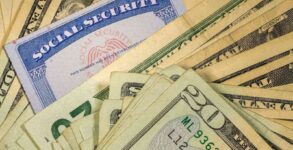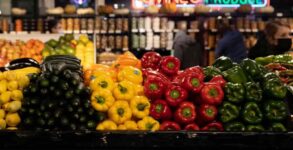Battle of Boyaca 2023: The Battle of Boyacá Day is observed annually on August 7 in Colombia to commemorate the 1819 Battle of Boyacá and its significance in the South American liberation movement. It is commemorated with parades and festivals that honour the war that paved the way for Colombia’s independence from the Kingdom of Spain.
THE HISTORY OF THE BATTLE OF BOYACA
The primary significance of the Battle of Boyacá was its role in ending Spanish rule in Colombia. Despite the fact that Colombia, then known as New Granada, proclaimed de facto independence in 1810, the Kingdom of Spain did not recognise the territory as an independent entity until 1819, following the battle.
The Battle of Boyacá was fought on the outskirts of Bogotá, the current capital of Colombia, between 2,850 soldiers under the command of Simón Bolvar and a slightly lesser army of Spanish royalists led by King Ferdinand VII of Spain. In 1815, after Napoleon’s Peninsular War in Spain concluded, Ferdinand VII plotted to reconquer South America, freeing his armies to participate in the reconquest. However, as a result of Spain’s exhaustion from the European conflict, its grip on South America was severely weakened. In 1816, they were able to recapture New Granada by reoccupying Bogotá.
The journey to Bolvar’s revolutionary victory at Boyacá in South America began in June 1819 and was one of the most difficult in military history. Due to the difficulty of traversing the Andes Mountains, the Spanish doubted that Bolvar’s army could reach them. Thus, they were surprised when Bolvar successfully spanned the Andes with his forces and launched attacks against the complacent Spanish at Boyacá. The campaign culminated on August 7, when the Spanish army surrendered at the Battle of Boyacá, paving the way for Bolvar to establish independence for the territory of Gran Colombia, which signalled the beginning of his quest to liberate all of Spanish-controlled South America.
Following the conclusion of the conflict, Gran Colombia was established, comprising the modern-day nations of Colombia, Ecuador, Panama, Venezuela, and Guyana. Due to political differences among the territories, Gran Colombia was dissolved in 1831, resulting in the independence of Colombia, Ecuador, and Venezuela. Then, in 1863, New Granada adopted the name United States of Colombia, and in 1886, the name was altered to Republic of Colombia.
Colombia celebrates its official independence day on July 20, 1810, the date of its de facto independence. Nonetheless, the Battle of Boyacá is commemorated as the moment when the country’s independence was realised.
FACTS REGARDING SIMON BOLVAR
- The dissolution of Gran Colombia in 1831 was regarded as a failure in Bolvar’s attempt to establish a unified continent.
- Two countries in South America bear his name: Bolivia and Venezuela, whose official name is “The Bolivarian Republic of Venezuela.”
- Bolvar believed that the nature and culture of South America rendered it unfit for democratic rule, which explains his authoritarian tendencies during his unpopular rule of Gran Colombia.
- Bolvar and Francisco de Paula Santander, his accomplice and ally during Boyacá, fell out over how to govern Gran Canaria, resulting in Santander allegedly conspiring to assassinate Bolvar.
- Hugo Chavez, president of Venezuela from 2002 to 2013, had Bolvar’s remains exhumed in 2010 in an unsuccessful attempt to establish that the revolutionary was murdered in 1830 rather than dying of natural causes.
International Sailor Moon Day 2023: Date, History, Activities, Facts
WHY THE BATTLE OF BOYACA IS VITAL
Bolvar’s decisive victory at Boyacá represents Colombia’s resistance to its colonisers. It exemplifies the spirit of a defiant people attempting to establish their own identity in the face of colonisation and stands as a testament against all forms of foreign subjugation.
The Battle of Boyacá Day honours those who sacrificed their lives for Colombia’s independence. Without these courageous soldiers, Colombia would not exist as it does today.
Under Spanish rule, indigenous Colombians were not permitted to occupy powerful positions or express their traditions as they had in the past. Without the victory at Boyacá, Colombia’s unique culture could not flourish under Spanish oppression. The victory gave Colombians dominion over their own destinies.


















